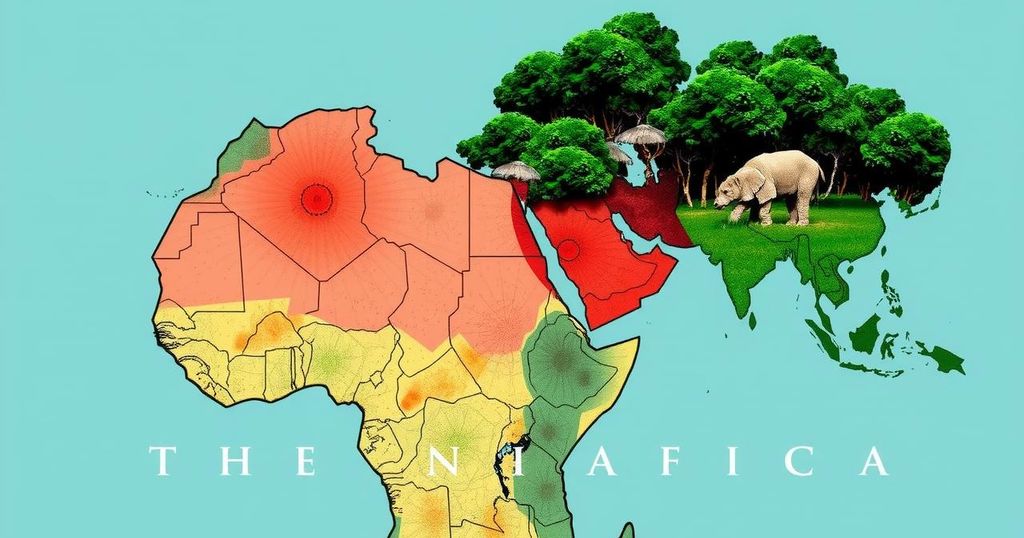At COP29, African countries sought $1.3 trillion annually in climate financing but were offered merely $300 billion, revealing a significant shortfall. The conference faced challenges due to fossil fuel lobby influence and geopolitical tensions. There is uncertainty regarding the nature of the proposed financing, raising concerns over potential debt increases. African nations are urged to leverage their natural resources in future negotiations to ensure climate finance is prioritized.
At the recently held COP29 climate conference, African nations faced significant setbacks in securing necessary climate financing. They sought a financial pledge of $1.3 trillion annually from developed countries starting in 2025 to combat climate change effects. However, agreements established during the conference only offered about $300 billion per year, which is insufficient for Africa’s pressing needs. The financing gap remains critical, as developed nations continue to struggle to meet their commitments, leaving African communities vulnerable to extreme weather events and adaptation challenges.
The discussions at COP29 did yield some commitments, such as the realization of a target calling for all stakeholders to significantly increase climate financing to $1.3 trillion annually by 2035. Nevertheless, the outcome highlighted a stark disparity between the needs of African nations and the agreed financial provisions. The failure to secure adequate support stemmed from multiple factors, including the influence of fossil fuel lobbyists who diminished the urgency of transitioning away from fossil fuels, as well as geopolitical tensions that diverted focus from climate issues.
The lack of clarity on how the proposed funding would be structured—whether through interest-free loans or grants—exacerbates the anxiety surrounding growing debt levels in African countries. Additionally, a pressing need for immediate climate adaptation funding means future financing needs could escalate, further complicating the economic landscape for these nations. The overarching theme of COP29 demonstrated that African voices continue to be undersupported and overshadowed by competing global priorities.
Moving forward, it is essential for African nations to leverage their natural resources strategically. By withholding essential minerals such as copper and lithium from the global market, they can create leverage for demanding adequate climate financing. The urgent call is for future climate negotiations to transition from mere discussions to actionable commitments that address the impending climate crisis and support those most affected by it.
The annual Conference of the Parties (COP) convenes representatives from around the world to negotiate measures aimed at combating climate change. At COP29, African nations entered the dialogue with a substantial demand for financial support aimed at addressing the dire impacts of climate change on the continent. With yearly financing needs projected at $1.3 trillion, their negotiations underscored the urgent need for true partnership from developed nations to address a crisis that disproportionately affects developing countries. The failure to meet these financial demands not only slows down the progress toward climate resilience but also jeopardizes the futures of millions of individuals across Africa who rely on climate financing for survival and adaptation.
In summary, COP29 presented a stark illustration of the unmet financial needs of African nations in the face of climate change. Despite agreements on increased future financing, the current offerings fall significantly short of what is required to seriously address climate adaptation challenges. The influence of external lobbying, geopolitical distractions, and ambiguous funding structures complicate Africa’s ability to cope with climate impacts. Moving forward, strategic actions regarding resource management will be critical for African nations to secure necessary commitments and ensure their voices are heard in global climate discussions.
Original Source: www.downtoearth.org.in






